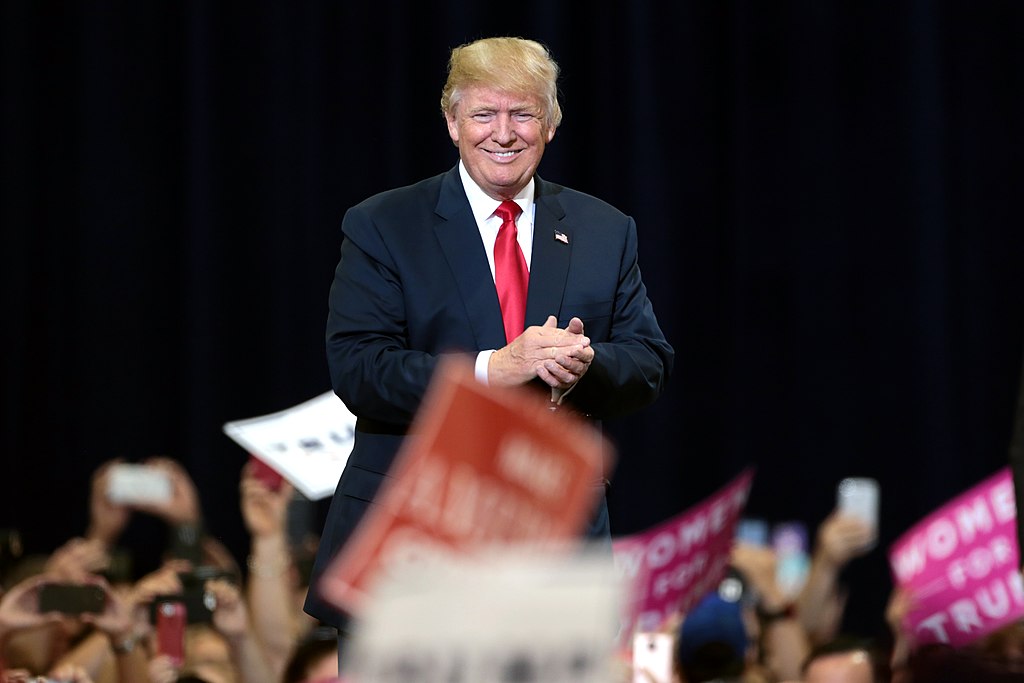Donald Trump’s return to the White House in 2025 comes with an ambitious domestic policy agenda designed to reshape America’s economy, education, and social systems. As he embarks on his second term, Trump has outlined bold initiatives aimed at boosting domestic production, limiting government regulations, and advancing conservative values. While his supporters praise these policies as transformative, critics caution against potential risks to economic stability and social equity.
Economic Revitalization: America First, Again
Reindustrialization and Tax Reforms
Trump’s economic priorities for 2025 focus heavily on bringing manufacturing jobs back to the United States. His administration has introduced new tax incentives for companies that relocate production to American soil and expanded tariffs on imported goods, aiming to protect domestic industries. According to the Department of Commerce, early indicators show increased interest from corporations considering reshoring operations.
However, critics warn that such measures could raise consumer prices and create trade tensions. Economists at the Brookings Institution argue that while protecting American jobs is critical, relying too heavily on tariffs might backfire. On social media, reactions have been mixed, with some users applauding Trump’s approach and others expressing concern.
Deregulation Drives Economic Growth
A central pillar of Trump’s domestic policy is deregulation. His administration has promised to streamline permitting processes for energy projects, cut red tape for small businesses, and reduce federal oversight in various sectors. Supporters argue this will create jobs and spur innovation, but environmental groups warn it could lead to ecological harm.
Education and Social Policy Shake-Up
School Choice and Curriculum Changes
Education reform remains a cornerstone of Trump’s domestic agenda. The president has called for expanding school choice programs, allowing parents to use vouchers for private or charter schools. Additionally, Trump’s administration seeks to overhaul public school curriculums, emphasizing “patriotism and traditional values.”
Opponents, including teachers’ unions, argue these changes could drain resources from public schools and exacerbate educational inequality. Advocates counter that the reforms empower families to seek better opportunities for their children. Twitter user @EducationMatters posted, “Giving parents control over education is a win for America’s future!”
Immigration and Social Security Overhauls
Trump’s stance on immigration includes stricter border security measures and renewed efforts to curb illegal immigration. These policies align with his broader goal of prioritizing American workers. Additionally, his administration has proposed reforms to Social Security, including raising the retirement age and introducing means testing for benefits.
Critics worry these changes may disproportionately impact low-income workers, while supporters see them as necessary steps to preserve the program’s solvency.
Netizens React: Praise, Concern, and Debate
- @AmericaFirst: “Trump’s bringing jobs back and fixing our schools. This is what leadership looks like!”
- @EcoDefender: “Deregulation may boost the economy, but at what cost to our planet?”
- @EduReform2025: “Finally, parents have a say in their kids’ education. Long overdue!”
- @SeniorRights: “Raising the retirement age? That’s unfair to hardworking Americans who depend on Social Security.”
- @JobsMatter: “Tariffs are risky, but if it means jobs in America, I’m all for it.”
- @ImmigrantVoices: “Stricter immigration policies hurt families and don’t solve the real issues.”



 Argentina Senate Approves Bill to Lower Age of Criminal Responsibility to 14
Argentina Senate Approves Bill to Lower Age of Criminal Responsibility to 14  Trump Warns Iran as Gulf Conflict Disrupts Oil Markets and Global Trade
Trump Warns Iran as Gulf Conflict Disrupts Oil Markets and Global Trade  Russia Signals Openness to U.S. Security Guarantees for Ukraine at Geneva Peace Talks
Russia Signals Openness to U.S. Security Guarantees for Ukraine at Geneva Peace Talks  U.S.-Israel Strike on Iran Escalates Middle East Conflict, Trump Claims Khamenei Killed
U.S.-Israel Strike on Iran Escalates Middle East Conflict, Trump Claims Khamenei Killed  Trump Floats Ted Cruz for Future U.S. Supreme Court Nomination
Trump Floats Ted Cruz for Future U.S. Supreme Court Nomination  HHS Adds New Members to Vaccine Advisory Panel Amid Legal and Market Uncertainty
HHS Adds New Members to Vaccine Advisory Panel Amid Legal and Market Uncertainty  USITC to Review Impact of Revoking China’s PNTR Status, Potentially Raising Tariffs on Chinese Imports
USITC to Review Impact of Revoking China’s PNTR Status, Potentially Raising Tariffs on Chinese Imports  Trump Launches Operation Epic Fury: U.S. Strikes on Iran Mark High-Risk Shift in Middle East
Trump Launches Operation Epic Fury: U.S. Strikes on Iran Mark High-Risk Shift in Middle East  Netanyahu Suggests Iran’s Supreme Leader Khamenei May Have Been Killed in Israeli-U.S. Strikes
Netanyahu Suggests Iran’s Supreme Leader Khamenei May Have Been Killed in Israeli-U.S. Strikes  Australian PM Calls Alleged Western Australia Terror Plot “Deeply Shocking” After Arrest
Australian PM Calls Alleged Western Australia Terror Plot “Deeply Shocking” After Arrest  Israel Declares State of Emergency as Iran Launches Missile Attacks
Israel Declares State of Emergency as Iran Launches Missile Attacks  Venezuela Oil Exports to Reach $2 Billion Under U.S.-Led Supply Agreement
Venezuela Oil Exports to Reach $2 Billion Under U.S.-Led Supply Agreement  Pakistan-Afghanistan Tensions Escalate as Taliban Offer Talks After Airstrikes
Pakistan-Afghanistan Tensions Escalate as Taliban Offer Talks After Airstrikes  Pentagon to Halt Ivy League Programs for U.S. Military Officers Starting 2026
Pentagon to Halt Ivy League Programs for U.S. Military Officers Starting 2026  Denver Mayor Orders Police to Protect Protesters, Restricts ICE Access to City Property
Denver Mayor Orders Police to Protect Protesters, Restricts ICE Access to City Property  U.S.-Iran Nuclear Talks Show Progress but No Breakthrough Amid Rising Military Tensions
U.S.-Iran Nuclear Talks Show Progress but No Breakthrough Amid Rising Military Tensions  Germany and China Reaffirm Open Trade and Strategic Partnership in Landmark Beijing Visit
Germany and China Reaffirm Open Trade and Strategic Partnership in Landmark Beijing Visit 
































